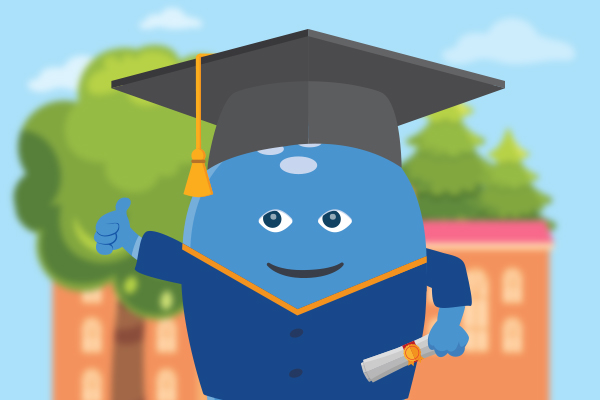
Communication skills are essential for high education studies
Students need communication skills in order to succeed in the academic world and later, in their professional life.
Starting a new academic year is exciting. As an undergraduate, you struggled to get used to the academic routine; you constantly worried about passing exams and occasionally wondered if you had made the right choice. Studying for a master’s degree or a doctorate diploma raises an entirely new set of concerns, and the studies may seem like an endless, intense race. By now, you have probably come to terms with your career choice. You may have already started a family; maybe you even have a job. Your biggest challenge at this point is to find the balance between your personal life and your academic duties—proposals, projects, courses, reports, and all the interpersonal interactions that that implies. No wonder, then, that pressure and feelings of uncertainty are more present than ever before.
In order to complete your duties, you have to depend on a lot of other people—academic advisors, colleagues and supervisory committees, to name a few. To complicate things even further, the high expectations of your environment are no help at all; the people close to you encourage you to continue the effort, and you feel compelled to meet their expectations.
Stress, concerns and expectations come at a cost. In a 2017 study of mental health issues among PhD students, half of the respondents reported having health problems during their studies. The study found that PhD students are at a significantly higher risk of developing psychological distress or other common psychiatric disorders compared to the highly educated in the general population. The work-family conflict is the strongest predictor of developing these conditions. Other predictors include heavy workload, high demands and difficulties in controlling the situation.
Good communication skills are necessary for the student’s learning phase and their future career. Commitment to work, communication abilities and teamwork skills are essential soft skills that enhance graduates’ employability. Additionally, learning soft skills increases the chances of finding a suitable job. In other words, students have the responsibility to upgrade their soft skills and adopt a proactive role in order to enhance their credentials.
Where can you learn communication skills?
Participating in social meetings, speaking more often with your friends and family can help improve your communication skills—as you can reflect on your feelings with people close to you. Although, at times approaching another person can be stressful, especially if the conversation is difficult.
Communication skills can be acquired and developed by using smartphone apps. CommReady’s chatbot provides users with a safe and private environment where they can examine and simulate a conflict situation from a new perspective without holding back or being judged.
The app’s simulations help prepare for:
- conversations with colleagues
- meeting academic supervisors
- interviews
- presentations and tests
- sharing your thoughts with family or friends
CommReady can assist students in dealing with unpleasant situations and reduce negative feelings. Gradually, it helps students build resilience and maintain emotional balance.
Comments are closed.

